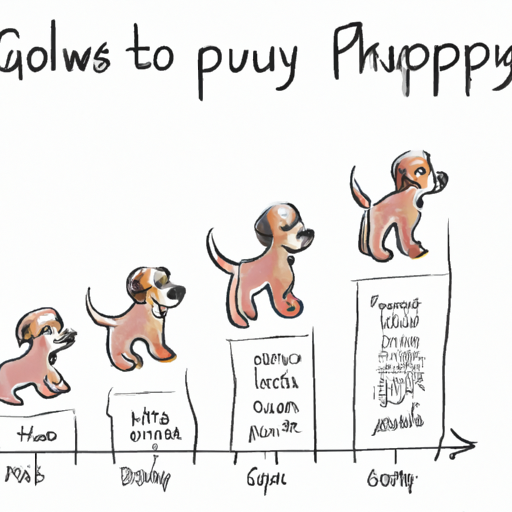Understanding Your Dog’s Growth Cycle
As a caregiver, it’s crucial to understand that your dog’s growth isn’t linear. It’s an intricate process involving a multitude of factors. Just as you’d watch a child grow, you need to pay attention to your dog’s development. You might be asking, “When do dogs grow the most?” Let’s break down the stages of a dog’s life.
-
Puppyhood – This is the fastest growth stage, lasting anywhere from 6 to 18 months depending on the breed. Your puppy’s size, breed, and health all play a role in how fast they grow during this stage.
-
Adulthood – Once they reach their full size, their growth slows down considerably. However, they continue to fill out, gaining muscle and fat.
-
Senior Years – In their golden years, they may lose some muscle mass and gain or lose weight, but their size will remain mostly constant.
The Impact of Nutrition on Growth
Just like humans, dogs need a balanced diet to grow and develop properly.
- Protein is essential for building muscle and tissues.
- Fats provide energy and help with brain development.
- Carbohydrates serve as an additional energy source.
- Vitamins and minerals support overall health and development.
| Nutrient | Purpose |
|---|---|
| Protein | Builds muscle and tissues |
| Fats | Provides energy and aids brain development |
| Carbohydrates | Serves as an energy source |
| Vitamins and Minerals | Supports health and development |
The Role of Genetics in Your Dog’s Growth
Genetics plays a significant role in determining how and when a dog grows. Large breeds tend to grow more quickly than small breeds, but they also take longer to reach their full adult size.
How Exercise Influences Your Dog’s Growth
Exercise is an essential part of your dog’s life. It helps build muscle, keeps the weight under control, and contributes to overall well-being. However, too much exercise or the wrong kind can harm a growing puppy. Always consult your vet before starting any new exercise routines with your pet.
Recognizing Growth Problems in Dogs
As a caregiver, it’s important to stay vigilant for any signs of abnormal growth in your dog. Some red flags include:
- Rapid weight gain or loss
- Difficulty walking or standing
- Lack of appetite
- Visible pain
If you notice any of these signs, it’s crucial to consult with a veterinarian immediately.
Frequently Asked Questions
Q: How can I tell if my dog is growing properly?
A: Regular vet check-ups are the best way to ensure your dog is growing at a healthy rate.
Q: Can diet affect my dog’s growth?
A: Absolutely. A balanced diet is crucial for healthy growth and development.
Q: What if my dog isn’t growing as fast as other dogs of the same breed?
A: Each dog is unique. If you have concerns, it’s best to consult your vet.
Q: How much should my puppy exercise?
A: Exercise is important, but the amount and type should be appropriate for your puppy’s age, breed, and health status. Always consult your vet.



